Survey of Five Asian Countries How do demands for nursing care services differ by country?
- Release date: Jun 11, 2020
- 3247 Views
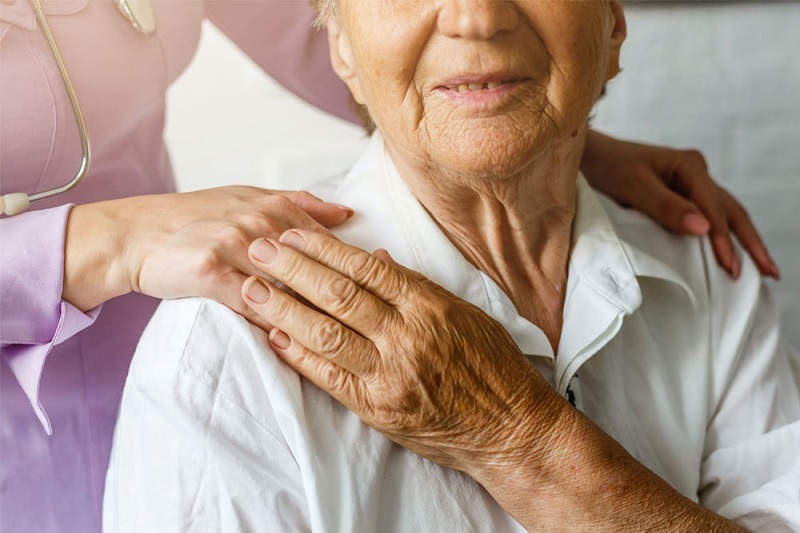
In this article, we will compare the actual situation regarding health and awareness of nursing care in Asian countries, and consider the effective ways in which Japan, which is ahead of other countries in the nursing care service field, can market its services in those countries.
Japan, a super-aging society How will the aging of Asian countries proceed?
This year's survey was conducted in five countries with different demographic structures: Japan, China, Thailand, Vietnam, and Indonesia.Chart 1 shows the projected population change by age group in each country.
Chart 1
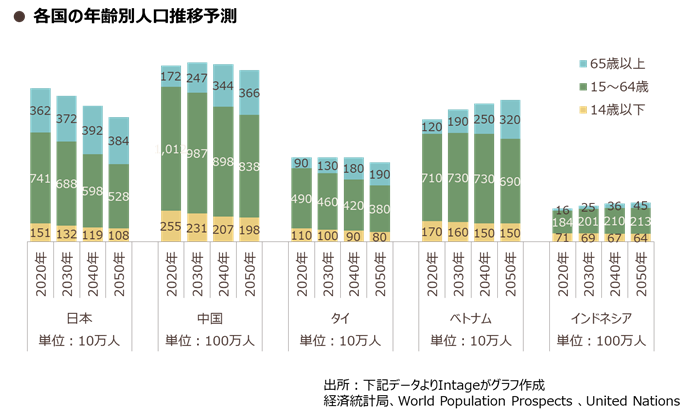
What are the differences in health behaviors among urban dwellers in Asian countries?
This survey was conducted on sei-katsu-sha living in urban areas in various countries. Once again, we compared the age composition ratio of urban dwellers. Chart 2 shows the composition of the surveyed population in their 20s to 60s.Chart 2
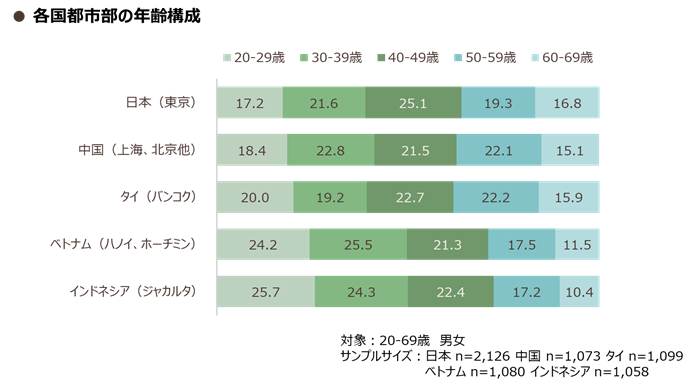
Let's take a look at the actual differences in the health issues they are facing. (Chart 3)
Chart 3
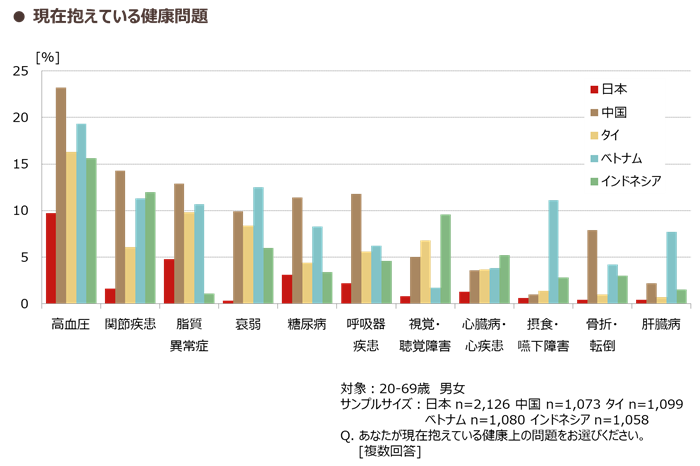
In addition, Japanese people have fewer health problems than people in other countries, while Chinese and Vietnamese people have more health problems.
Next, let's take a look at the differences in how health problems are addressed. (Chart 4)
Chart 4
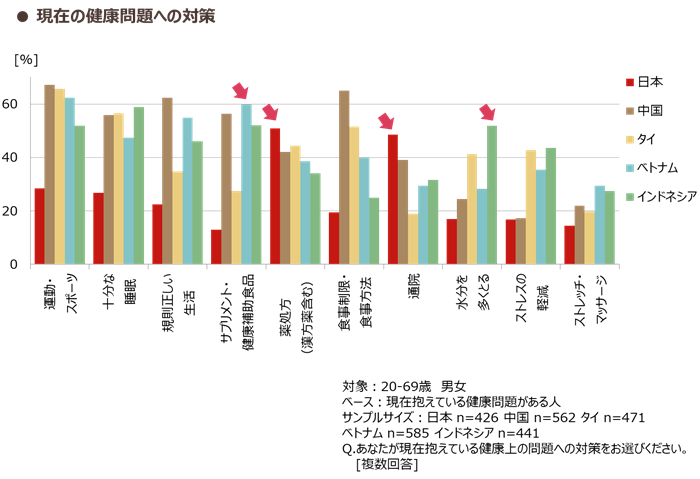
On the other hand, in other Asian countries, in addition to the lack of medical institutions and systems, there is a strong awareness of the need to cope with diseases through lifestyle, partly due to the concept of Oriental medicine. In China and Thailand, where there are a relatively large number of elderly people, regular lifestyle measures such as exercise, diet, and sleep are common, while in Vietnam, exercise and supplements are common, and in Indonesia, sleep and water intake are common.
The needs of nursing care services differ from country to country. What kind of communication will lead to gaining trust?
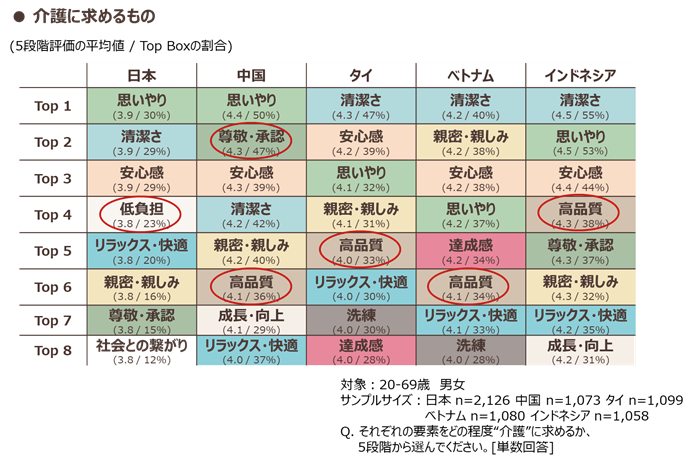
"Appeal for communication that "you can leave everything to medical professionals with peace of mind
This survey confirmed the fact that many people in Japan have no experience in nursing care, especially compared to other countries. It is also characteristic that "low burden" is one of the top requirements for nursing care. In Japan, it is thought that there is a need for "24-hour monitoring services" that can be left entirely to medical institutions and specialists.
China:
"Appeal for communication of "respect and approval for both caregiver and cared-for person
In China, there is a characteristic of seeking respect and approval from caregivers. For example, if there is a service such as a "caregiver online platform" that allows both caregivers and care-givers to freely share information and communicate online, the need for recognition could be met.
Thailand:
"Realization of a high level of cleanliness" as a communication appeal
In Thailand, cleanliness is the number one thing people look for in a nursing home, and many people consider cleaning to be an issue in nursing care. It is important to satisfy the need for thorough cleanliness with powerful sterilizers and deodorizers.
Vietnam:
"Appeal for communication of "realization of nursing care through exercise
Vietnamese people have always tended to emphasize exercise as a way to cope with health problems, and exercise and rehabilitation came to the top of the list of nursing care issues. Services that meet the needs for promoting exercise, such as robots that promote exercise, are required.
Indonesia:
"Appeal for communication that "enables people to feel the joy of moving and shopping
In Indonesia, going out and shopping were seen by many people as a challenge for nursing care. It is thought that there is a demand for assistive devices such as walking aids to help people get around, and to meet the need for people to be able to change their mood by changing places.
Many of the functions of Japanese nursing care services are already in place. Depending on how they are delivered, it may be possible to offer the unique Japanese hospitality to each country. This analysis is based on the results of a voluntary survey conducted by Intage with the following design.
[Voluntary survey data from Intage's online research]
Survey area: Japan (Tokyo), China (Shanghai, Beijing, Guangzhou, Tianjin, Shenzhen), Thailand (Bangkok), Vietnam (Ho Chi Minh City, Hanoi), Indonesia (Jakarta)
Target population: Males and females aged 20-69
Sampling method: Questionnaires were sent out from the partner panels in each country
Sample size: n=2,126 (Japan) n=1,073 (China) n=1,099 (Thailand) n=1,080 (Vietnam) n=1,058 (Indonesia)
Survey period: May 15, 2020 - May 22, 2020
-
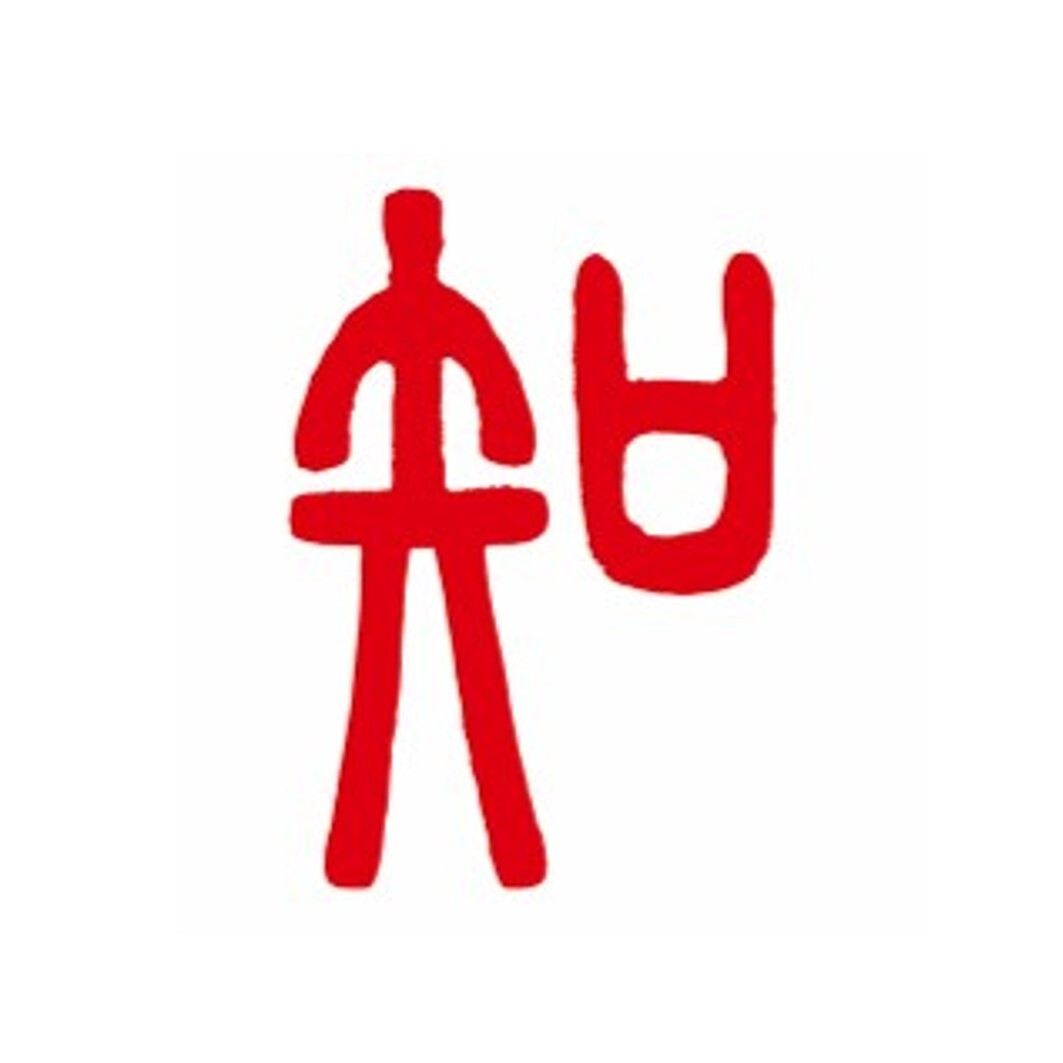
Author profile
Intage Inc
***
-

Editor profile
Intage Inc.
***
 Global Market Surfer
Global Market Surfer CLP
CLP